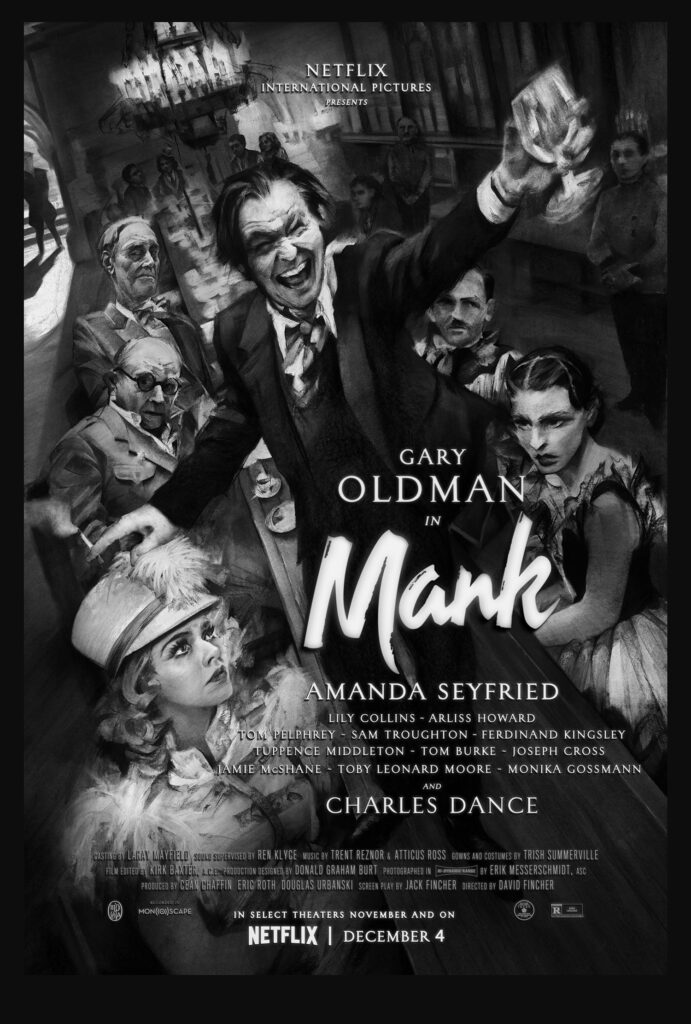Movie review: Mank
Director: David Fincher
Rating: 7/10
Review by: Raghav Raj

Mank, David Fincher’s first feature film in six years, begins the same way a lot of his others do, by throwing the audience into the midst of chaos with very little to latch on to.
Before, in films like Se7en and Fight Club, this overload of information felt tonally pitch-perfect, as if Fincher had lit a fuse that wouldn’t stop until it arrived at its inevitable, explosive conclusion. It felt like a way to imbue the film with momentum, to instill a sense of the high stakes at play and the darkness lurking just below.
Here, in a charmingly hyper-literate bio-pic, one often attempting to toe the line between vibrant whimsy and palpable tedium, this sort of information overload feels like too much. By casting us directly into the life of the shambling, ungainly screenwriter Herman Mankiewicz (played with sharply acerbic wit by the well-worn Gary Oldman) as he attempts to pen the screenplay of Citizen Kane, Fincher begins on an odd note, and the first act often feels frantic and unkempt.
It is a rousing testament to the rest of the film’s exceptionality, however, that Mank ends up being not only watchable, but an utterly delightful feat in and of itself.
Mank, once it settles in, becomes one of the most astute films to really understand the ugliness at the heart of Hollywood, resisting romanticization at every turn to paint an honest image of the corrupt, soul-selling nature that drove Mankiewicz to write Citizen Kane in the first place, as a scathing indictment of an industry and its corrupt connections.
It is filled with remarkable performances from the top down, from the aforementioned Oldman to Amanda Seyfried, whose work here is leagues above Mean Girls and even her stellar turn in First Reformed. She is the magnetic, glamorous aspect of a film that often rejects this glamour for something far more cynical, and she plays it up stupendously for one of the finest roles she’s ever taken on.
Past the acting, it’s helmed by a screenplay as witty and wise as Mankiewicz’s character is, originally written by Fincher’s late father in the late 90’s held on to for years by his son. In the sense of the latter, this film is a labor of love on Fincher’s part, and it truly plays out like it, shot in vivid black-and-white for something as warmly nostalgic as it is bitingly ironic.
It is just another of the many things that Fincher does right here, and what results is a film that’s able to overcome its initial shortcomings for an experience both deeply enjoyable and subtly rewarding. It may not be Fincher’s best, or even his best biopic — The Social Network takes that cake — but Mank is an essential addition to his canon, a pleasantly new direction for an established legend.
